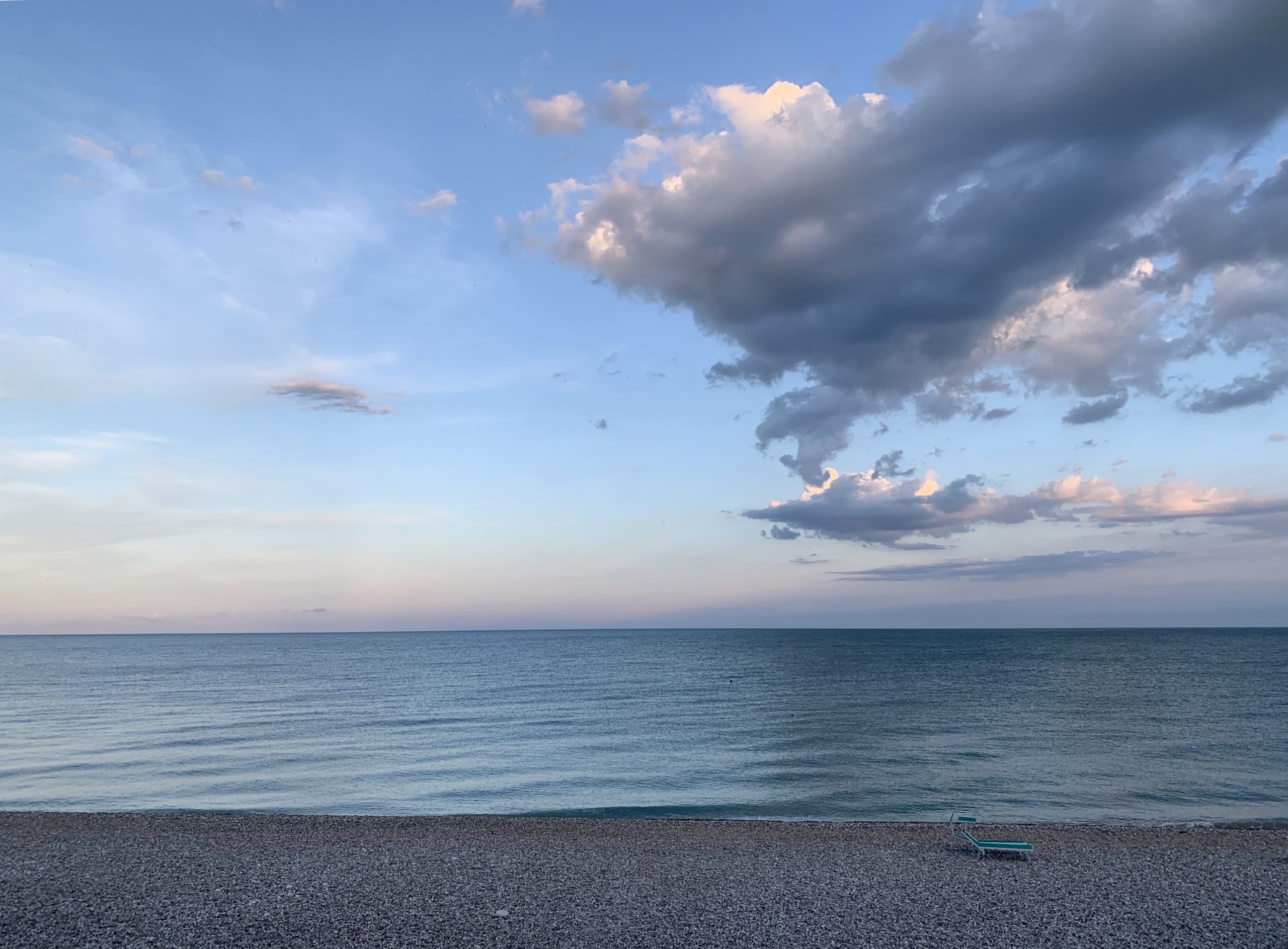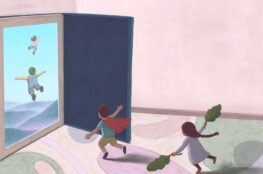Il racconto di una regione attraverso le voci dei suoi scrittori
All’inizio c’è il desiderio di raccontare un paese, dunque le sue regioni, che sono tante, ognuna con le proprie ferite, bellezze, differenze. La scommessa è farlo attraverso le voci degli scrittori che quel luogo lo abitano.
Viaggi d’amore in un Paese di pazzi è la definizione che Davide Grittani, scrittore e giornalista, curatore della collana “Dispacci Italiani”, sceglie per il suo progetto, uno sguardo intimo, un modo per raccontare il paese “da dentro”.
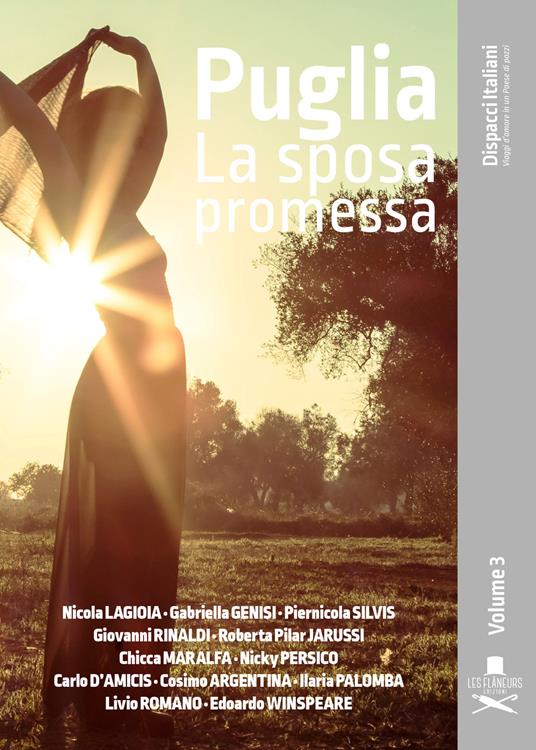
Il terzo volume di “Dispacci Italiani” – dopo Toscana. L’atelier della bestemmia, e Nel mare di Lombardia – è dedicato alla nostra Puglia, amata da noi e da tanti, parrebbe, ma anche poco compresa, colpita a sangue, mortificata.
Puglia. La sposa promessa è il titolo della nostra antologia (Les Flâneur Edizioni, 2021), forse perché questa regione così snella, tutta protesa sul mare, porta spalancata del mediterraneo, tacco e sperone vulnerabili dell’intero stivale, rimanda a una promessa rinnovata e mai mantenuta. All’attesa che si sfilaccia nel tempo, a una donna bella che tutti vogliono e nessuno responsabilmente tiene.
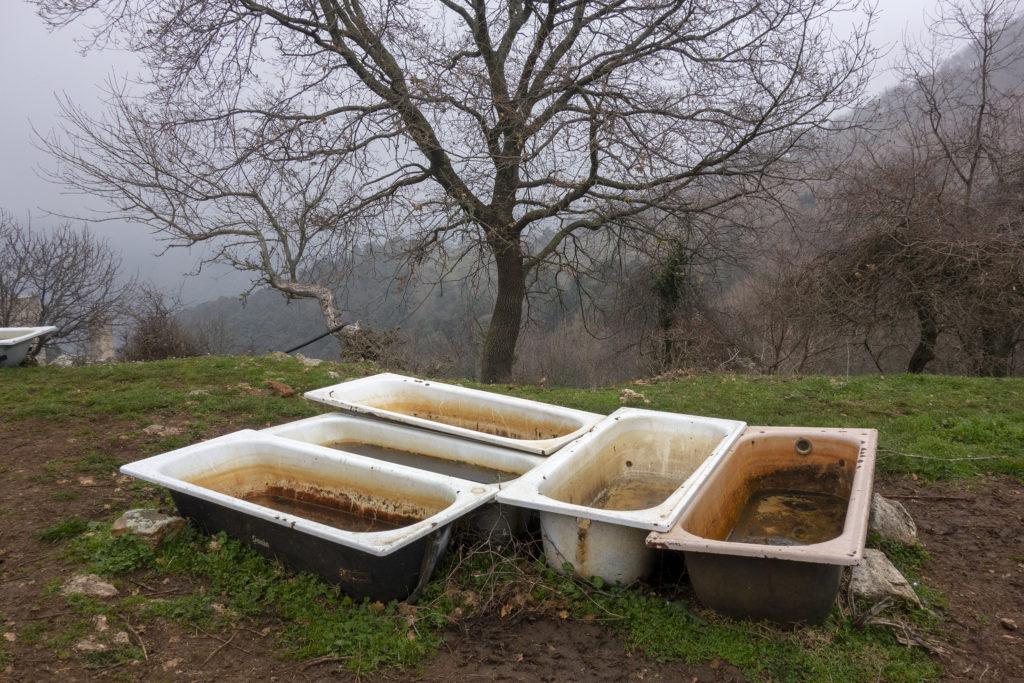
La sfida lanciata agli scrittori è stata quella di raccontare qualsiasi cosa (“tema libero”, come si suol dire), purché fosse narrato in prima persona, avesse forza, empatia e naturalmente aderenza a questa terra. Esattamente questa, non un’altra. Insomma, che le storie non fossero mai e in nessun caso disgiunte dal luogo nel quale prendevano vita e che il luogo, appunto, fosse protagonista delle vicende quanto e più delle persone, e non mera scenografia.
Così è stato.
Gli autori – molti dei quali assai noti – hanno raccontato storie diverse, leggere, drammatiche, articolate o rapide e incisive come una Polaroid. Storie che non potremmo immaginare in nessun altro luogo, eppure dal respiro universale. In queste pagine, gli scrittori, ci hanno infilato la Puglia intera; dalla costa alle piccole realtà dell’interno, dal profondo Salento passando per una Taranto sconquassata e sempre intensa, fino al Gargano, tanto bello quanto tagliente.
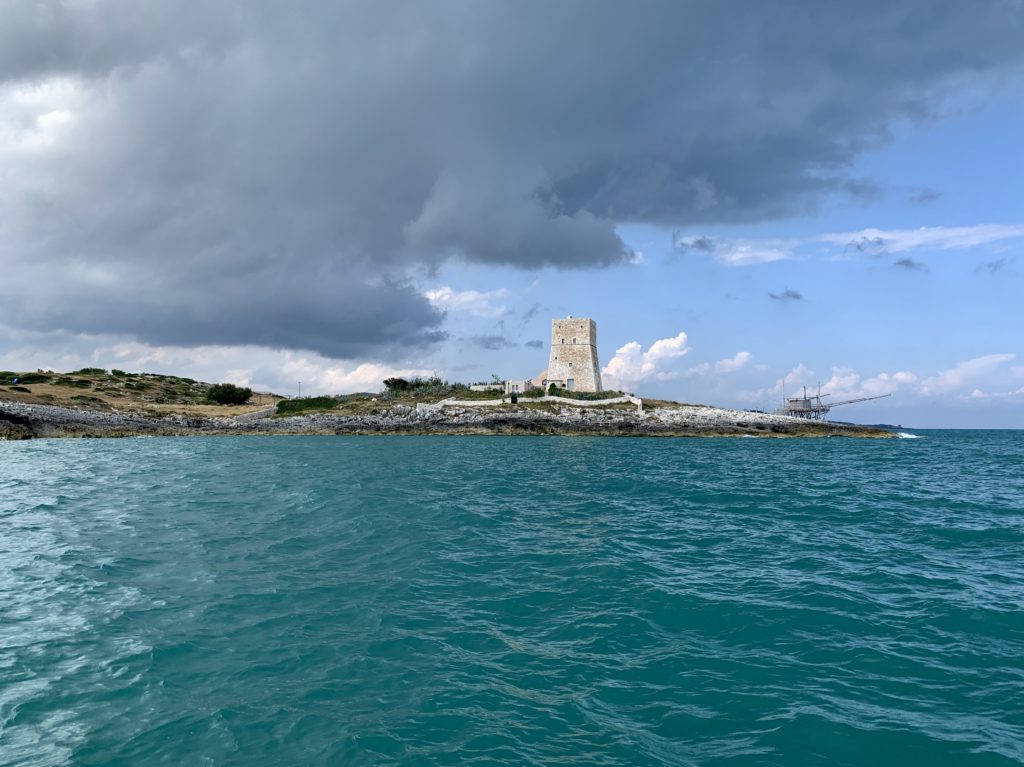
Questo libro, un lavoro corale a tante voci, alcune certamente riconoscibili, è impreziosito da fotografie che accompagnano ogni racconto, spesso opera degli autori stessi. Ne viene fuori un disegno insolito e onesto, una narrazione disarmante che non assomiglia in niente a quella patinata degli spot turistici. Che se ne frega del sole, del mare e del vento, della seduzione facile al ritmo di pizzica, e che accompagna il lettore negli angoli più scomodi e meno noti di questa terra aspra. Che non ha paura di mettersi a nudo, di mostrare imperfezioni, voragini, segni permanenti, cicatrici vecchie e anche nuove, che anzi a tratti affonda il dito nella piaga e lo stesso non perde mai la bellezza.
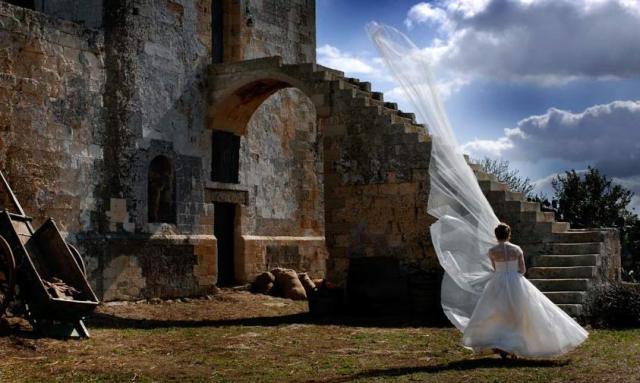
La bellezza, quella che colpisce e non dimentichiamo più, ha sempre in sé una nota dolente, un graffio, una mancanza che percepiamo sotto pelle senza neanche capire esattamente cosa sia. Ecco, gli scrittori de La sposa promessa queste contraddizioni le hanno messe nella pagina e hanno provato a raccontare lo struggimento che vivere, o passare di qui, comporta.
Possiamo ipotizzare, in un futuro non lontano, di poter godere di una sorta di mappa letteraria del nostro (bel) paese, dove il carattere dei luoghi è tradotto in parole poetiche dai suoi stessi scrittori e che tutte queste storie, poi, compongano tanti volumi quante sono le nostre regioni, così diverse ma qui tenute insieme dalla forza della scrittura.
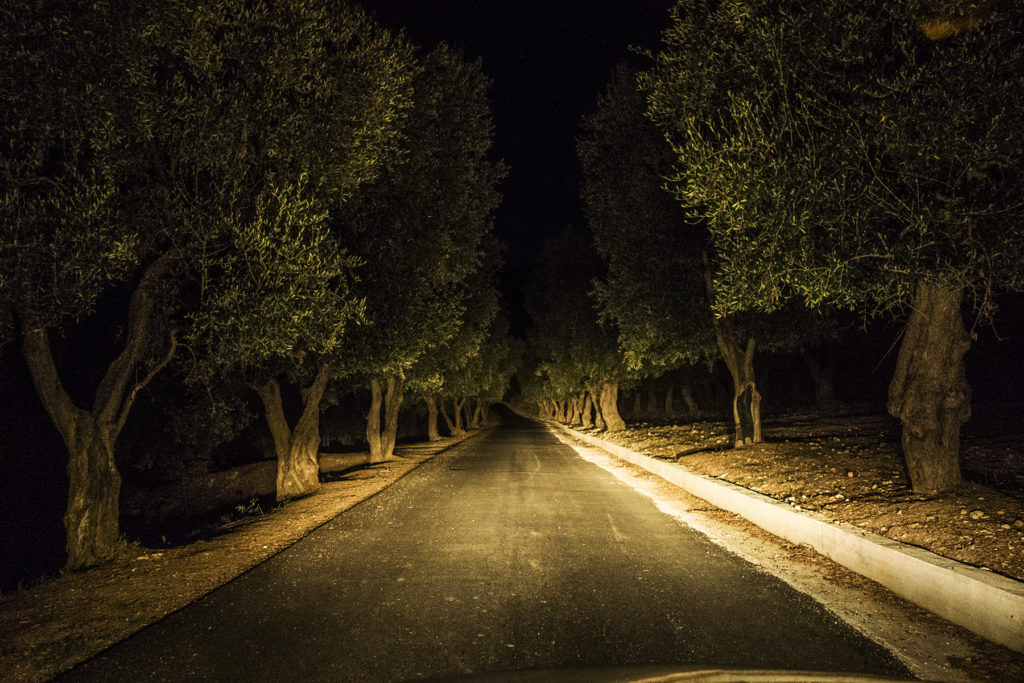
Gli autori
Nicola Lagioia, Gabriella Genisi, Piernicola Silvis, Giovanni Rinaldi, Roberta Pilar Jarussi, Chicca Maralfa, Nicky Persico, Carlo D’Amicis, Cosimo Argentina, Ilaria Palomba, Livio Romano, Edoardo Winspeare. Collana diretta da Davide Grittani.
[La foto-copertina dell’articolo è di Roberta Pilar Jarussi]
Apulia. The Promised Bride
The story of a region through the voices of its writers.
At the beginning there is the desire to describe a country, therefore its regions, which are a lot, everyone with its own wounds, beauties, differences. The gamble is to do this through the voices of the writers that inhabit that place.
Love journeys in a country of crazy people (in italian: Viaggi d’amore in un Paese di pazzi) is the definition that the writer and journalist, editor of the series “Dispacci italiani”, Davide Grittani, chooses for his project, an intimate gaze, a way to describe the country “from the inside”.
The third volume of “Dispacci Italiani” – after Toscana. L’atelier della bestemmia and Nel mare di Lombardia – is dedicated to our Apulia, loved by us and by lots of people, so it seems, but also little understood, beaten to death, mortified.
Puglia. La sposa promessa (in english: Apulia. The Promised Bride)is the title of our anthology (edited by Les Flâneur, 2021), maybe because this region so slim overlooking the sea, the wide open door of the Mediterranean, the vulnerable heel and spur of the whole boot, refers to a renewed but never kept promise, to the expectation that frays over time, to a beautiful woman that everyone wants and no one responsibly takes.
The challenge thrown down to the writers was to tell anything (“free theme”, as they say), as long as it was narrated in the first person, as long as it had strength, empathy and of course adherence to this land. Exactly this one, not another. Therefore, the challenge was that the stories were never and in no case separated from the place in which they came to life and that the place, indeed, was the protagonist of the events as much as and more than the people, and not mere scenography.
And so it was.
The authors – many of them well known – have told different stories, that can be light, dramatic, articulate or quick and incisive like a Polaroid. They are stories that we could not imagine anywhere else, yet with a universal breath. In these pages, the writers have inserted the whole of Apulia: the coast, the small inland realities, the deep Salento including a battered and always intense Taranto, up to the Gargano, as beautiful as sharp.
A choral work with many voices, some of which certainly recognizable, this book is embellished with photographs that accompany each story, and that are often taken by authors themselves. The outcome is an unusual and honest design, a disarming narrative that looks nothing like the glossy one of the tourist spots. It doesn’t care about the sun, the sea and the wind, about the easy seduction with the rhythm of pizzica; it accompanies the reader in the most uncomfortable and less known corners of this harsh earth. It is not afraid to get naked, to show imperfections, chasms, permanent marks, old and even new scars, but actually, sometimes, makes them worse and never loses its beauty.
Beauty, the one that strikes and that we never forget, always includes a sore point, a scratch, a lack that we perceive under the skin without even understanding exactly what it is. Therefore, the writers of La Sposa Promessa (The Promised Bride) have put these contradictions on the page and have tried to tell the sorrow that living or passing through here involves.
We can suppose, in a not-too-distant future, to be able to enjoy a sort of literary map of our (beautiful) country, where the nature of the places is translated into poetic words by its own writers. We can also suppose that all these stories then compose an amount of volumes depending on how many regions we have, so different but here held together by the power of writing.
The authors
Nicola Lagioia, Gabriella Genisi, Piernicola Silvis, Giovanni Rinaldi, Roberta Pilar Jarussi, Chicca Maralfa, Nicky Persico, Carlo D’Amicis, Cosimo Argentina, Ilaria Palomba, Livio Romano, Edoardo Winspeare. Collana diretta da Davide Grittani.
[The cover picture of the article is by Roberta Pilar Jarussi]
Traduzione a cura di Gabriele Azzarone Tirocinante del Corso di studi in Lingue moderne per la comunicazione e la cooperazione internazionale, Università degli Studi di Macerata.

